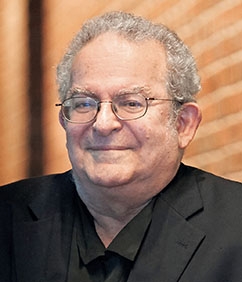Landmark Indian Supreme Court ruling on same-sex intimacy includes multiple citations of David Richards’s work
When the Supreme Court of India issued a landmark ruling this month that overturned India’s 157-year-old law criminalizing same-sex sexual activity, the five-judge panel drew on a multinational assortment of scholarship to support its decision. The nearly 500-page opinion not only quotes the likes of Goethe and Shakespeare but also includes multiple references to the work of Edwin D. Webb Professor of Law David A. J. Richards. India is the largest democracy in the world, and, according to Human Rights Watch and other organizations with an international focus on LGBT rights, the September 6 ruling will likely have global ripple effects.
In its unanimous opinion, India’s highest court cited two articles by Richards, a pioneering scholar on gay rights as grounded in human and constitutional rights. The panel used passages from “Sexual Autonomy and the Constitutional Right to Privacy: A Case Study in Human Rights and the Unwritten Constitution” (1979) for two purposes: to help explain and refute the idea of “unnatural acts” in sexual activity between consenting adults, and to assert that the right to privacy stems from an individual’s right to autonomy. In another part of the opinion, the court drew on “Unnatural Acts and the Constitutional Right to Privacy: A Moral Theory” (1977), borrowing Richards’s phrase “institutionalized expression to love” to argue for the importance of allowing individuals to express love toward a partner without hindrance.
Richards describes the ruling as “very heartening and moving,” adding, “It supports three points that have long been at the heart of my work. First, the right to personal love, at the heart of arguments for gay/lesbian/transgender love, is a universal human right that has resonance across human cultures. Second, recognition of the right often arises from institutions that respect free speech, as India…clearly does.”
Finally, Richards says, “it is important that India’s constitutional system was shaped by its roots in resistance to British imperialism, and the decision importantly repudiates a law imposed on India by the British.”
Kenji Yoshino, Chief Justice Earl Warren Professor of Constitutional Law and an expert on constitutional law and antidiscrimination law, points out how prototypical Richards’s scholarship is. “The words quoted by the court reflect David’s hallmark philosophical and psychological rigor,” says Yoshino. “What may be less apparent on a quick read is his prescience—he wrote the two cited pieces in the 1970s. He has walked down the corridor of four decades elaborating these arguments. It is wonderful to be here with him when the world is finally ready to hear them.”
Posted September 21, 2018


